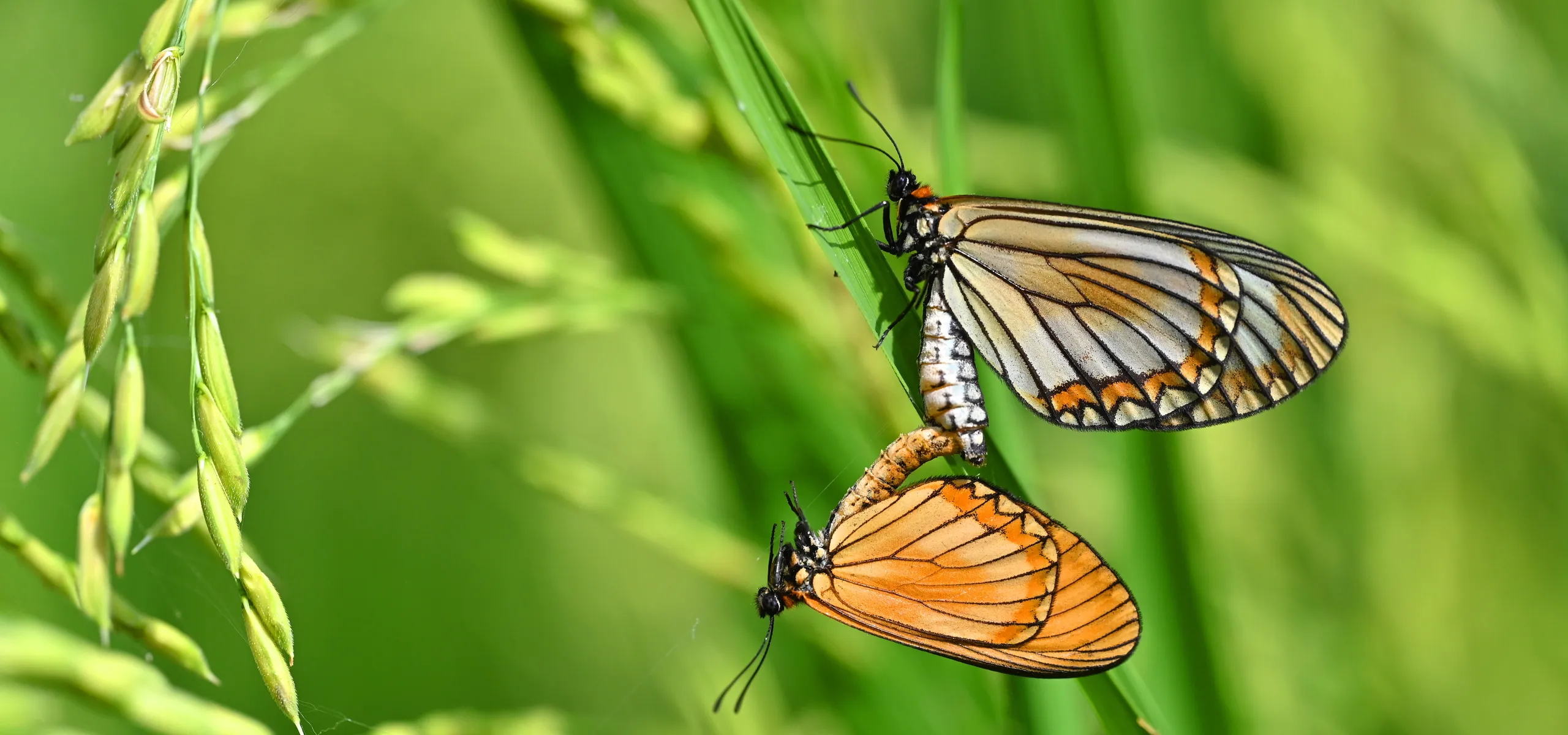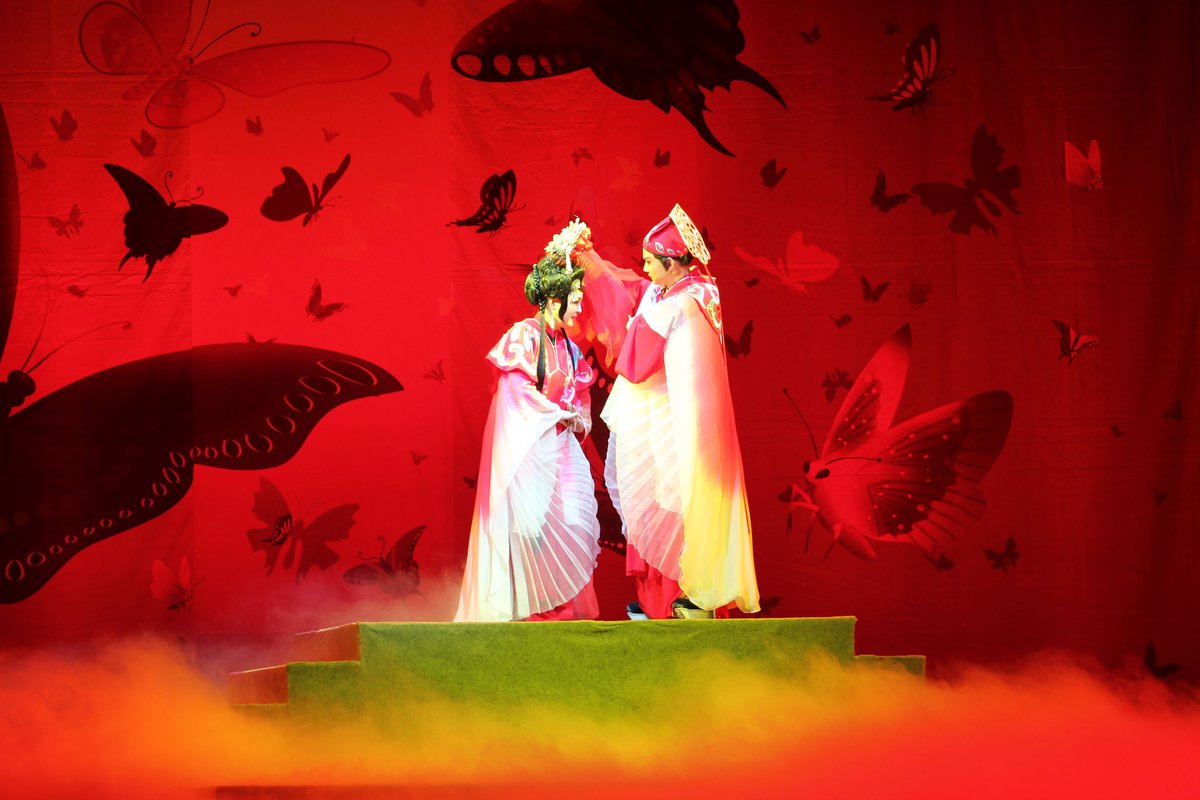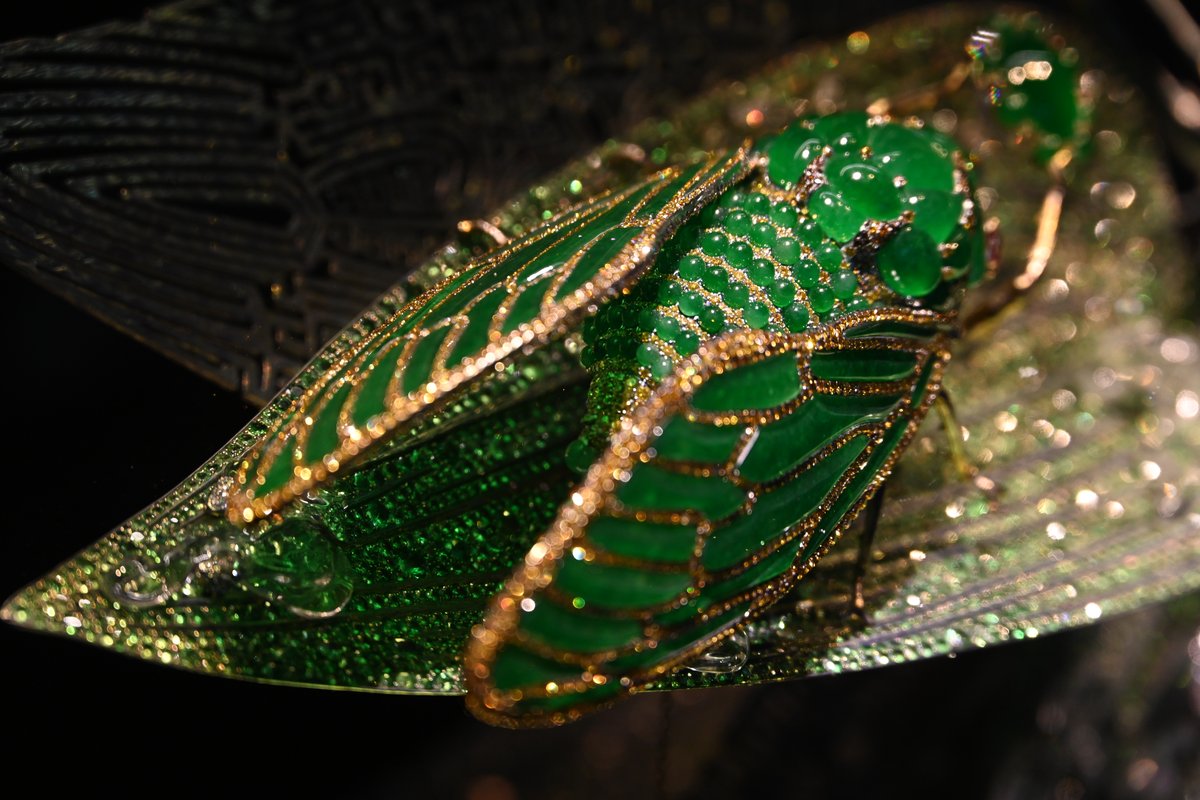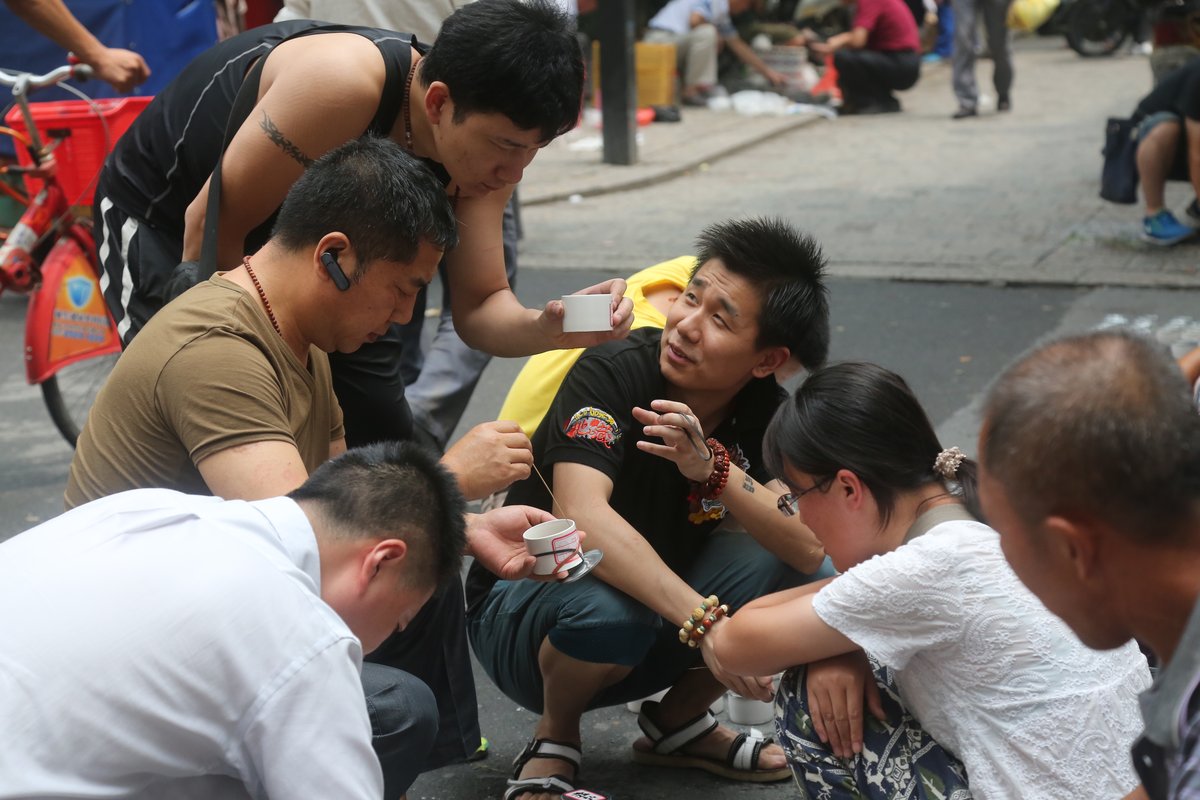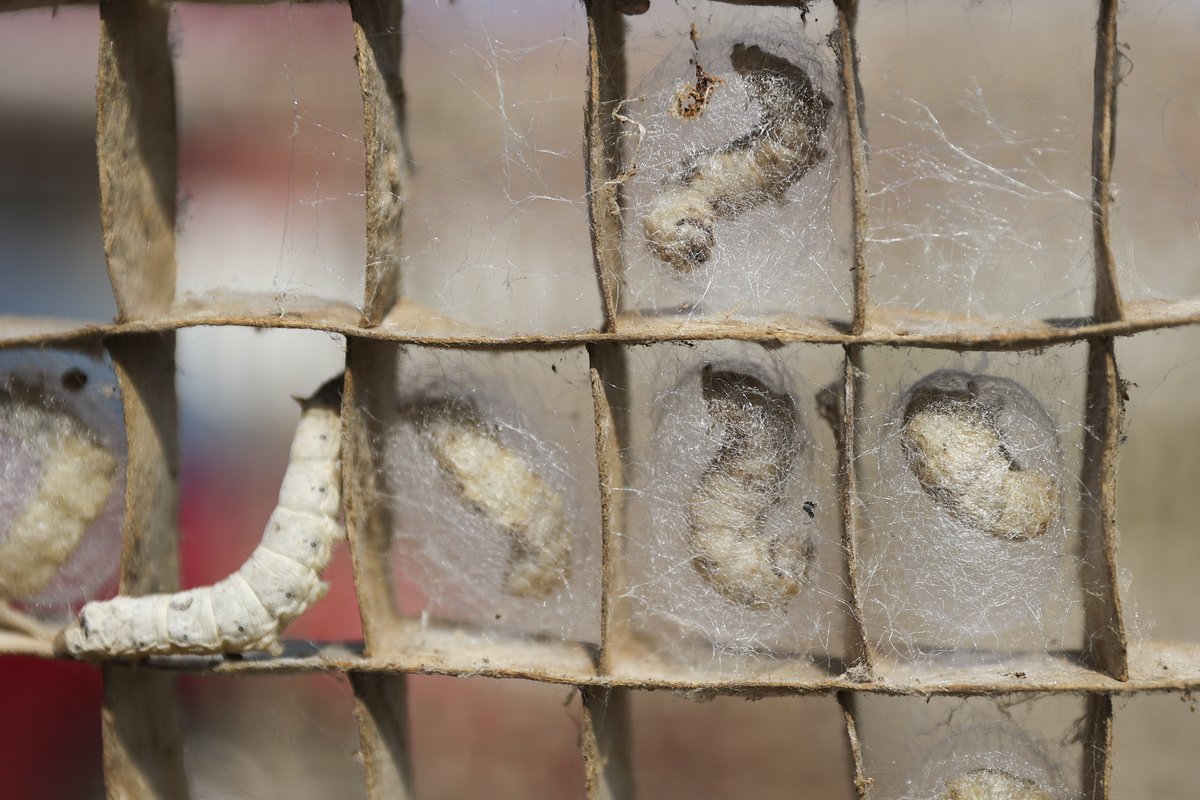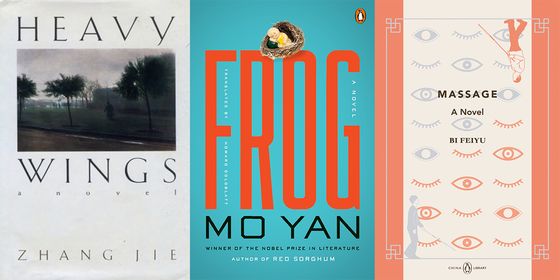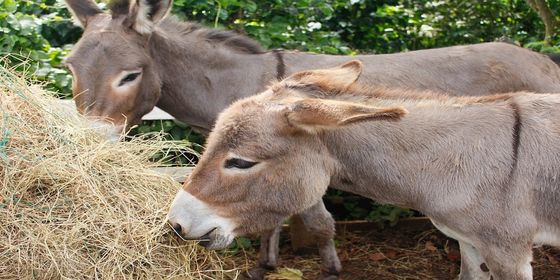Learn the symbolism of insects in Chinese folklore, poetry, and traditional culture
The traditional Chinese lunisolar calendar divides the year into 24 solar terms, some with more interesting names than others. While the meaning of Qingming (literally “Clear and Bright”) may leave some scratching their heads, it’s not hard to guess what happens on the Awakening of Insects, or Jingzhe (惊蛰), which begins on March 6 this year.
As its name indicates, on Jingzhe, the third solar term in the calendar, the insects who’ve been sleeping all winter are awakened, and spring has truly started. Just like flowers, trees, and birds (parrots in particular), insects represented various different qualities in ancient Chinese literature and culture, and Jingzhe is the perfect season for discovering them all:
Butterfly: Romance and Freedom
Since butterflies are often seen in pairs, they are used as a metaphor for lovers. The most famous love story involving butterflies is the ”Butterfly Lovers,” or “Liang Shangbo and Zhu Yingtai (《梁山伯与祝英台》),” one of the four great Chinese love stories. In it, two star-crossed lovers become butterflies after their deaths, never to be parted again.
In the early 1900s, a literature school focused on tragic romance emerged, which was called the “Mandarin Duck and Butterfly School.” Its plots usually focused on romance between a sensitive male scholar and a beautiful woman. Though this literary genre was controversial to progressive scholars at the time, and eventually died out, it enhanced people’s impression of butterflies as a symbol of romantic love.
Besides romance, the butterfly was also famous in ancient philosophy. The scholar Zhuang Zhou (庄周), or Zhuangzi, who lived in the Warring States Period (475 – 221 BCE), recorded a special dream in his book Zhuangzi (《庄子》): Once, Zhuang Zhou dreamed that he became a butterfly. He flew happily about, completely forgetting who Zhuang Zhou was. When he woke up, he remembered he was Zhuang Zhou, and asked: “Was it Zhuang Zhou dreaming that he was a butterfly, or a butterfly dreaming that he was Zhuang Zhou?”
People have interpreted this saying as the key to Zhuangzi’s philosophy: Humans are an integral part of nature, and life is illusory and constantly changing. Only when people realize this, and no longer care about the differences between reality and illusion, can freedom of spirit be achieved. Thus, “Zhuang Zhou dreams of a butterfly (庄周梦蝶)” became a chengyu as well as a philosophical concept, indicating that it’s impossible for a person to distinguish between what is real and unreal.
Cicada: Dignity and Rebirth
Ancient Chinese people observed that cicadas often stay on high trees and only drink dew for food, so they believed this insect had transcended worldly desires. It was often used as a symbol for dignity and integrity. For example, in Records of the Grand Historian (《史记》), Sima Qian (司马迁) used the cicada as a metaphor to praise the virtue of statesman Qu Yuan (屈原), saying: “Just like the cicada threw off its slough, [he] kept away from the dirty things and managed not to be contaminated (蝉蜕于污秽,以浮游尘埃之外).”
Jin-dynasty (265 – 420) scholar Lu Yun (陆云) described the cicada as “the insect of greatest virtue (至德之虫),” and stated five reasons: “It is elegant, because its shape looks like the belt of a man’s hat; it is lofty, because it only takes air and dew for food; it is incorruptible, because it doesn’t consume grains; it is frugal, because it doesn’t need a nest for residence; and it is trustworthy, because it lives a routine life according to seasonal change.”
In the Tang dynasty (618 – 907), poems with cicada themes were in vogue, and most of them made mention of the insect’s supposed integrity. The most famous three works were collectively called the “Three Finest Poems on Cicadas (咏蝉三绝).” The first one was “On Cicadas,” by Yu Shinan (虞世南), who wrote: “[The cicada’s] chirping spreads far because it stands high, not with the help of the autumn wind (居高声自远,非是藉秋风),” implying that one’s reputation spreads because of his own virtue and talent, not the help of bigwigs. The second one was “The Cicada Heard in Prison” by Luo Binwang (骆宾王). Luo likened himself to a cicada, describing the hardship the insect was faced with: “Heavy with dew, it cannot fly; drowned in the wind, its song is not heard (露重飞难进,风多响易沉).” Then the poet expressed his grievance at being wronged in the last line: “No one believes your spirit high, to whom can you express your true feeling (无人信高洁,谁为表予心)?”
The last one was by Li Shangyin (李商隐), which was also titled “On Cicadas.” The poem interprets the cicada’s continuous chirping as a complaint about its difficult life: “It’s hard to get fed when you’re so high up. Complaints are futile because no one cares (本以高难饱,徒劳恨费声).” The poet empathized with the insect, writing: “I am much obliged to you for alerting me here. Like you, my life’s austere and morally bound (烦君最相警,我亦举家清).”
People also associated the emergence of the cicada from its cocoon with rebirth. In the Han dynasty (206 BCE – 220 CE), when it was popular to bury abundant funerary objects with the deceased, a jade cicada was one of the most common burial objects. It was often put in the mouth of the dead in praise of their good virtues and to wish them a good reincarnation.
Cricket: Autumnal Lament
The cricket might be the favorite bug of ancient Chinese. Since the Tang dynasty, raising crickets had been fashionable. According to Anecdotes of the Tang Under Emperor Xuanzong’s Reign (《开元天宝遗事》), a book finished during the 10th century, women in the imperial court often bred crickets in small golden cages in autumn, and put them around their beds to listen to the insect’s chirping at night. Gradually, this practice was introduced to the common folk, and ordinary people also began to raise crickets for fun.
Also in the Tang dynasty, cricket fighting appeared as a pastime, before thriving in the Song dynasty (960—1279). Prime Minister Jia Sidao (贾似道) was so fascinated with cricket fighting that he even wrote a book on his experiences of raising and playing with crickets, which earned him the nickname “Cricket Prime Minister.”
Though crickets were playthings in people’s daily lives, in literature they were a symbol of sadness and lament. That’s because crickets mostly live in the autumn, and “mourning for autumn” was a major theme in classical Chinese poetry and literature. As autumn was when the seasons began to turn from prosperity to decline, the subject was a gloomy one. As a symbol of melancholy autumn, crickets were often used to express homesickness, sadness, frustration, and loneliness. For example, in the poem “Hearing the Insect (闻虫)”, Tang poet Bai Juyi (白居易) complained that the cricket’s chirping added to his sorrow on an autumn night: “The insect is chirping on a long night, the weather in autumn is cloudy and wet. The cricket won’t allow a sorrowful person to fall asleep, or why does it come close to the bed (暗虫唧唧夜绵绵,况是秋阴欲雨天。犹恐愁人暂得睡,声声移近卧床前).”
Silkworm: Sacrifice and Love
The textile industry has a long history in China. Legends say it was Leizu (嫘祖), the wife of the legendary Yellow Emperor, who discovered the method of making silk. It’s said one day when Leizu was drinking a cup of tea, a silkworm cocoon fell into her cup. Because of the heat, a fine thread started to separate itself from the cocoon. Leizu found that she could unwind this thread around her finger, and it was soft and sturdy. She persuaded her husband to give her a grove of mulberry trees, where she could domesticate the silkworms and harvest their cocoons to produce silk.
Chinese people have indeed domesticated silkworms for thousands of years. Because the worms die when their silk is harvested, sentimental people felt it was a great sacrifice, and regarded the worm as a selfless giver. In an untitled poem, Li Shangyin created a famous verse to extol the silkworm’s dedication: “A spring silkworm winds its silk till death (春蚕到死丝方尽).” This line is now often used as a metaphor for a teacher’s selfless contribution. In addition, since the character 丝 (silk) has the same pronunciation as 思 (lovesickness), many people believe this line was actually describing a deep love.





